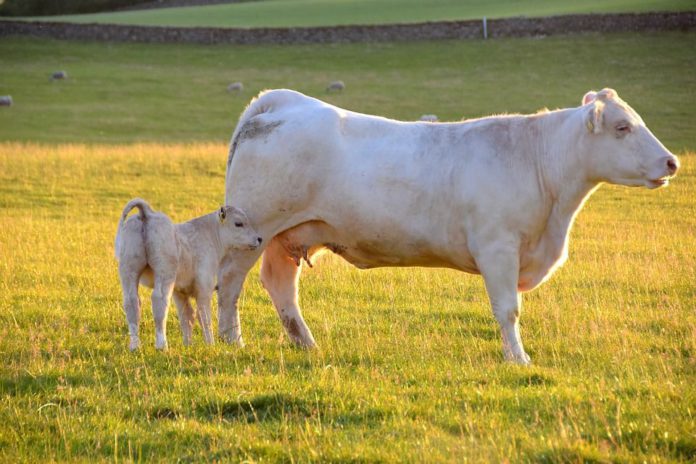“There is no scientific evidence that calving at 24 months of age will reduce the mature weight of a cow.”
That is what Teagasc told farmers at last week’s national Beef2022 Open Day.
The state agency explained to attendees that passed through the gates that beef cattle can take up to four years to reach their mature weight.
As with all animals, it explained that any setback due to poor health, restricted nutrition, or other factors that reduces growth may “negatively” impact mature weight.
A spokesperson told farmers: “High technical efficiency levels in a suckler system can prevent impacts on mature weight.”
According to the ICBF, the current national average age at first calving in suckler-bred heifers is 32 months. Its database shows that only 23% of heifers calve at 24 months of age.
When compared to 74% of dairy-bred heifers calving for the first time at 24 months of age, there is “huge” potential for improvement in this important reproductive key performance indicator, in Teagasc’s view.
Teagasc reported that the top 10% of commercial suckler herds and research herds are “consistently” calving heifers at 24 months.
36-month-old calving
Work from Teagasc Grange has highlighted that a heifer calving at 36 months of age consumes:
- 96% more silage;
- 65% more grass;
- 33% more concentrates than an equivalent heifer calving at 24 months.
The spokesperson noted: “Calving at two years of age will increase farm productivity but this requires careful planning and a high level of technical efficiency to ensure consistent success.”
According to Teagasc, delaying first-calving from 24 to 36 months of age decreases the net margin per hectare by 50%, which, it explained, is mainly attributed to feeding an “unproductive” heifer.

Other farming/agricultural news articles on That’s Farming:





